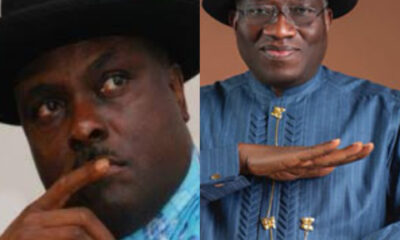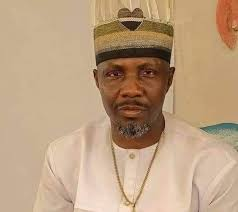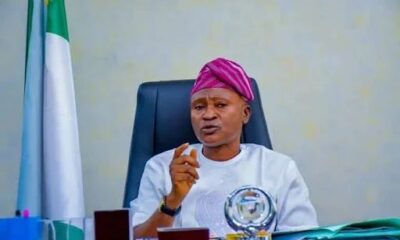Politics
Senator Seriake Dickson: Portrait of the Last Man Standing

BY EGUONO ODJEGBA
In a season of defections and ideological erosion, Senator Henry Seriake Dickson has emerged as a rare constant in Nigeria’s opposition politics. Representing Bayelsa West and formerly serving as Governor of Bayelsa State (2012–2020), Dickson has become a symbol of unwavering loyalty to the current, opposition Peoples Democratic Party (PDP), even as the party faces existential threats from within and without.
When Governor Douye Diri and Senator Konbowei Benson defected to the ruling All Progressives Congress (APC), Dickson’s reaction was not just emotional—it was emblematic. He walked out of the Senate chamber, visibly disillusioned but not defeated.
His public rebuke of Diri’s defection—calling it an escape from problems the defectors themselves created, underscored his belief in political accountability and ideological fidelity. Dickson’s political philosophy is rooted in constitutionalism, democratic resilience, and regional representation.
His refusal to abandon the PDP, even as it hemorrhages leadership, is not just about loyalty but about strategic resistance to one-party dominance. In his own words: “I don’t believe Nigeria should be a one-party state… I remain steadfast in the PDP”.
It is a conviction that serves several stabilizing functions, in the main been a moral anchor. In a political culture often driven by opportunism, Dickson’s consistency offers a moral compass for younger politicians amid gapping disillusion. With close to two decades of party politicking, he offers a legacy of loyalty across all tiers of representative governance, beginning at the grass root through the state into the national political space.
Dickson’s political journey began at the grassroots, rising through the ranks to become Governor of Bayelsa State (2012–2020). His tenure was marked by educational reforms and institution-building, which earned him national recognition.

Even after serving out his governorship tenure, Dickson remained a dominant force in Bayelsa politics. His influence shaped PDP structures and strategy, often acting as a bridge between local interests and national party directives.
As Senator for Bayelsa West, Dickson has used his platform to champion democratic values and regional development, while consistently defending the PDP’s ideological stance.
As human, tte recent political upheaval in Bayelsa that saw Governor Diri’s defection to the APC, followed swiftly by Senator Benson’s exit naturally was a moment of visible frustration, as he walked out of the Senate chamber following the announcement of as Benson’s ; signaling both protest and heartbreak.
Yet, rather than follow suit, Dickson reaffirmed his loyalty: “I am where I have always been. I don’t believe Nigeria should become a one-party state. As a democrat, I understand the ups and downs of the process, but I remain constant and steadfast in the PDP.”
Dickson’s stance is not just about party politics but about principle. In backing Professor Joash Amupitan’s nomination as INEC Chairman, he demonstrated a commitment to due process and democratic integrity, even as others questioned the nominee’s affiliations.
His refusal to abandon the PDP, despite the collapse of its leadership in Bayelsa, positions him as a guardian of party values. In a state where PDP once reigned supreme, Dickson now stands alone, not as a relic of the past, but as a beacon for its possible resurgence.
Dickson’s story is one of endurance, conviction, and loyalty. As Bayelsa’s political landscape shifts, his presence offers continuity—and perhaps, a rallying point for those who still believe in the PDP’s vision.































